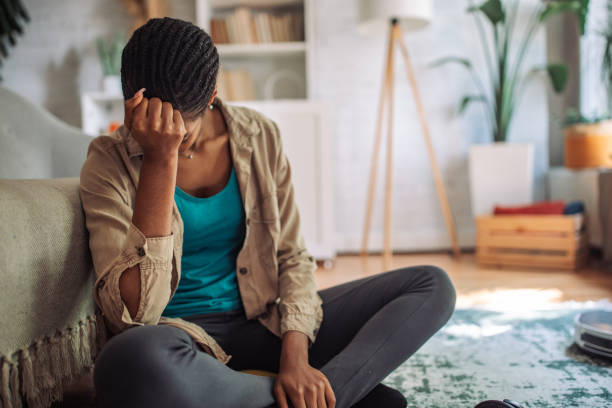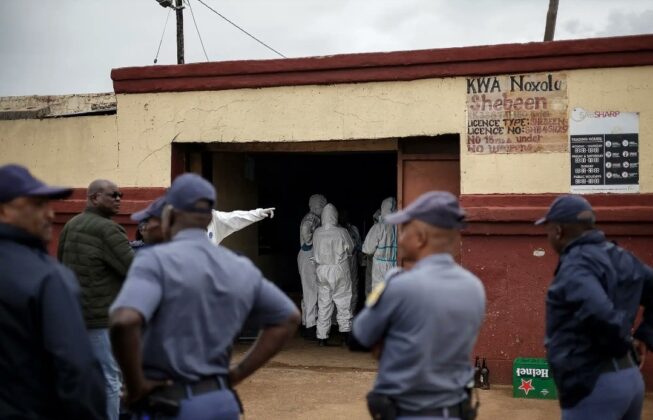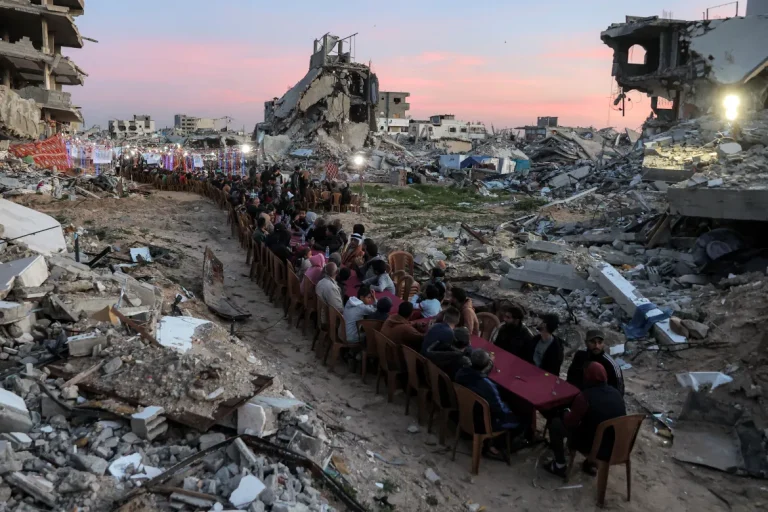
Depression in black communities remains widely misunderstood, highlighting the need for open conversations and mental health support. Image credit: Getty images
(The Post News)– Depression in Black communities across South Africa is a growing concern that often goes unnoticed, unspoken, and untreated. While mental health awareness has increased in recent years, many Black South Africans still face cultural, social, and systemic barriers that prevent them from seeking help.
In many Black communities, depression is misunderstood or dismissed as a sign of weakness or spiritual failure. Instead of being treated as a medical condition, people often label it as laziness, stress, or something to be prayed away. This stigma stops individuals from speaking openly about their struggles. As a result, they suffer in silence and isolation.
Several factors contribute to depression in Black communities. These include poverty, unemployment, trauma, substance abuse, and the lasting effects of inequality. Many feel pressured to remain emotionally strong, even when overwhelmed. Without support or access to care, they continue to carry that burden alone.
A major issue is the lack of mental health education. In some families, depression is not recognized as a medical illness. People misinterpret symptoms, and emotional pain goes unnoticed. Because of this, many never receive a diagnosis or treatment. Community leaders, churches, schools, and clinics all have a role in spreading awareness. With more education and access to culturally sensitive care, people can find hope and healing. No one should have to suffer in silence.
Silent Struggles: A Mother’s Battle with Depression
A 29-year-old woman from KwaXimba, KwaZulu-Natal, who wishes to remain anonymous, shared her personal story. She first noticed signs of depression in 2020 after the birth of her second child. She described the experience as mental oppression and overwhelming emotional weight.
During her pregnancy, the child’s father left her and returned to the mother of his other child. She felt deeply hurt, especially since she had left someone she truly loved to be with him. As her pregnancy continued, so did her emotional burden. She felt as if she carried both the physical weight of the baby and the emotional pain of betrayal and shame.
When the baby turned six months old, the father stopped providing financial support. The added stress worsened her mental state. Although no doctor diagnosed her, she recognized the symptoms. She joined online support groups to learn how others coped but feared therapy because of how people in her community might judge or gossip about her.
In one moment, she chose to get a nose piercing, hoping the physical pain would distract her from her emotional suffering. She told herself that since she had walked into the situation on her own, she had to find her way out alone. Eventually, she turned to prayer and asked God to release her from what she described as the shackles of depression. With time, she began to feel better.
Her family still does not know what she went through. She once thought about harming herself, hoping others would see her pain. She never spoke up, fearing judgment. Unemployment added to her struggles. Many nights, she stayed awake, overwhelmed by financial stress. She believes a support system and proper guidance could have helped her heal faster.
Expert Insight on Depression in Black Communities
Clinical psychologist Dr. Mosa Malema, spoke to The Post News about how depression affects Black communities. She explained that while mental illness touches every background, stigma in Black communities, especially among men, prevents many from seeking help.
Men are often expected to be strong and unemotional. Because of this, they avoid talking about their mental health. Dr. Malema said cultural beliefs often influence how people see depression and whether they accept treatment. When helping patients, she considers these beliefs to make therapy more effective.
She listed symptoms such as deep sadness, loss of interest, fatigue, sleep and appetite changes, and harmful thoughts. In therapy, psychologists guide patients to replace harmful thoughts with healthier ones and teach better coping habits. They also work to reduce the influence of negative cultural beliefs. However, not all traditions are harmful. In some cases, rituals help with healing. For example, traditional mourning practices after losing a spouse can offer emotional support.
Dr. Malema also mentioned common causes of depression in Black communities. These include financial pressure, family obligations like black tax, lack of support in old-fashioned households, and spiritual confusion from being told they are gifted without proper mentorship.
Some patients visit therapy without realizing they are depressed. Once diagnosed, they may deny it. This is when stigma becomes a barrier. Many also refuse to take medication for depression, even if they take medication for other illnesses. This shows a clear need for mental health education.
For those who cannot afford private care, Dr. Malema suggests reaching out to the South African Depression and Anxiety Group (SADAG). SADAG offers free counselling via their website at www.sadag.org. People can also call the Suicide Crisis Helpline at 0800 567 567, the Cipla Mental Health Helpline at 0800 456 789, or send an SMS to 31393. WhatsApp support is available through the SADAG website. If services are not available at a clinic, people should request a hospital referral. Dr. Malema also urges the public health system to screen patients to prioritize urgent cases because of long waiting lists.
Please share your thoughts contact Thembeka via email: Journalist-thembeka@thepostnews.net



